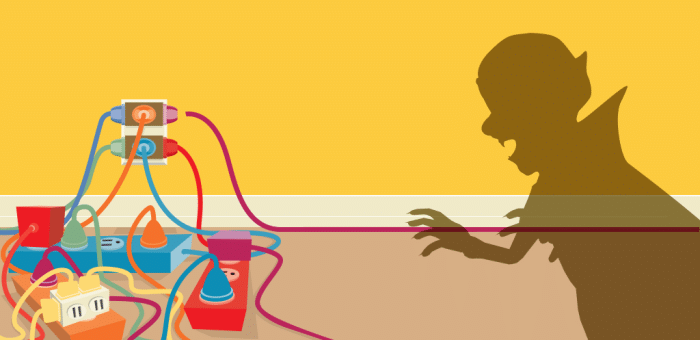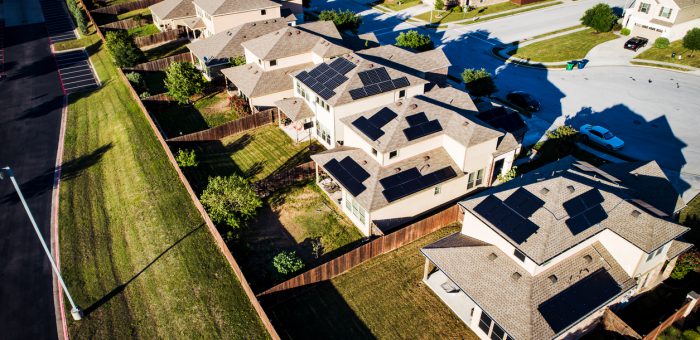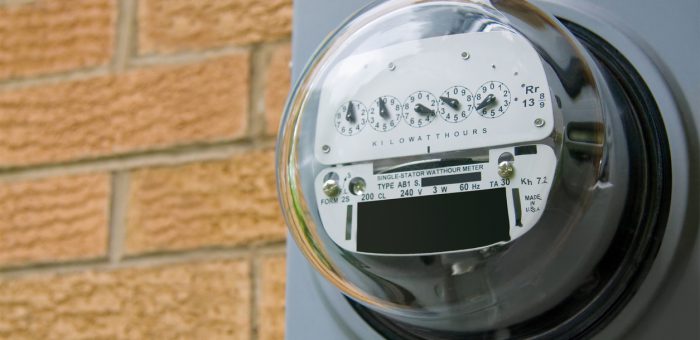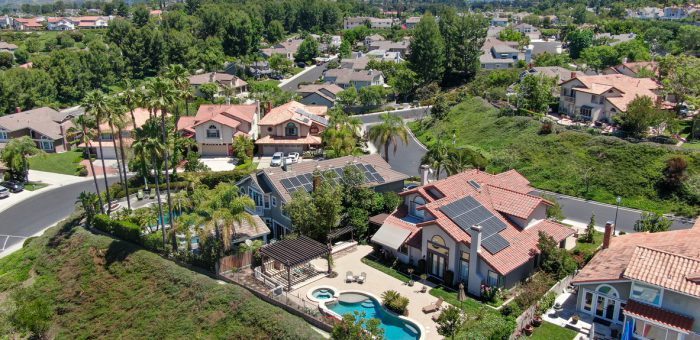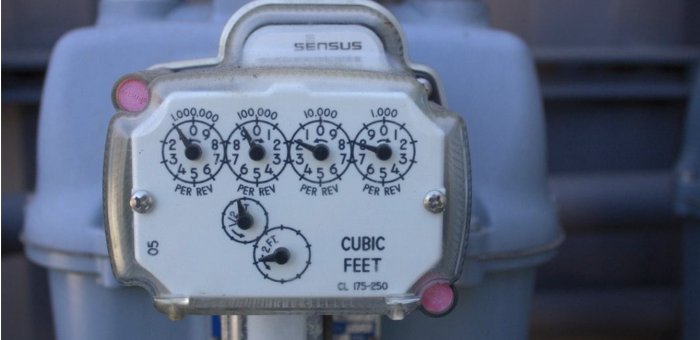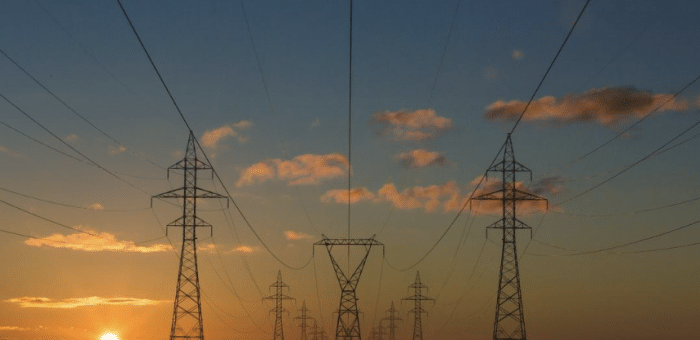Find out today with Power Wizard!
Go use the Power Wizard Shopping Tool to find out if you could save money on electricity by switching to renewable energy. Then, if solar panels are a good fit for you, come back here to learn more about how much you could save.How Much Do Solar Panels Save? It Depends.
Click on a section to skip directly to it:
Review Your Electric Bill
When trying to estimate how much money solar panels could potentially save you on your electric bill, the first thing you need to think about is your current bill. Consider factors such as:- What type of plan do you currently have?
- How does your spending compare to the national average?
- How much do you typically spend on electricity per year?
Are Your Electricity Rates Higher Than the National Average?
Solar panel savings are highly individualized. Your local rates are the biggest contributing factor to determining your potential savings with solar panels. As of February 2020, the national average residential electricity rate is 12.85¢ per kWh. Another important aspect to consider is the ever-changing electricity rates, as well as the expected increases over the years. Since utility rates are affected by inflation, it’s safe to assume that electricity rates will continue to rise steadily year after year. If rates in your area are high and continue to increase every year, solar panels will likely save you money in the long run.Annual Electricity Spending
The average American household uses about 11,000 kWh annually. Multiply that by the February 2020 national average electricity rate of 12.85¢ per kWh, and you’ll see that the average family spends around $1,413 per year on electricity. This means that, potentially, solar panels could save the average American family up to $1,413 per year on their electric bill. If your annual electricity spending is greater than the national average, your potential for savings will be even greater too. If your average spending is substantially higher than the national average, you may also want to shop around for an electric plan that better meets your needs. Power Wizard’s Savings Estimate can match you with a plan for your personal usage in as little as 5 minutes.
Your Sun Exposure
The second most important aspect to consider is your home’s sun exposure. The amount of sun your home is exposed to can determine how much electricity your panels will generate, and thus how much you could potentially save on your electric bill. While you can still accrue savings on cloudy days since the sun still emits energy through the clouds, in general, the greater the sun exposure, the greater your savings will be. Factors to consider when thinking about your home’s sun exposure include:- Your home’s orientation toward the sun
- The amount of shade on your roof
- Your roof’s size
- Your roof’s shape
Solar Panel Expenses in Your Location
Often, when considering solar panels, one of the first questions that come to mind is… How much do solar panels cost? Much like solar panel savings, there is no straightforward answer. It depends on a couple of factors. The prices will vary greatly depending on where you live. Typically speaking, the total cost of residential solar panels can range from $15,000 to $40,000. The cost of the actual panels usually accounts for only 30% of the total cost. When considering the total cost of solar panels, you need to also consider costs for:- The system
- Installation
- Operations
- Maintenance
State and Federal Incentives
The final components to consider when thinking about how much solar panels save on electric bills are the state and federal incentives offered. Your final costs are highly dependent on where you live as well as the rebates, grants, and tax credits you qualify for. In many cases, the government offers impressive incentives for going solar. For example, homeowners that install solar panels in 2020 are eligible for a tax credit in the amount of 26% of their installation costs. Homeowners installing in 2021 can receive a credit of 22%. In addition to these federal tax credits, some states may offer additional incentives for solar panel usage. Some homeowners could end up saving as much as 50% when all credits, rebates, and incentives are calculated into the equation.Can Solar Panels Eliminate Electric Bill?
Any time the topic of going solar comes up, another commonly asked question is… Will my electric bills go away entirely with the installation of solar panels? And just like most everything else regarding solar – the answer is maybe. There is no clear-cut answer because, once again, it is dependent on several factors. Factors to consider include:- The size and shape of your roof – How many solar panels will your roof be able to accommodate?
- Your electricity usage – Will you be able to generate enough electricity to meet your personal electricity needs?
- Electric company fees – Does your electric company charge fees that you’ll have to pay, even if you’re producing enough electricity to meet your needs?
How Do Solar Panel Savings Work?
Along with your solar panel system, a special smart electric meter, known as a net meter, will be installed. This net meter will measure the amount of solar energy your home is producing. When you produce more electricity than you need to power your home, your net meter automatically sends the excess energy to the grid in exchange for credits. Then on days of poor weather or at night when your solar system is under-producing, your system can pull the additional energy you need to power your home using your accrued credits to offset the cost of this additional energy. Essentially, your solar panels generate electricity and then sell the excess energy back to the grid for “credits” on their monthly electric bill. Actual savings depends on how much electricity you generate vs. how much you use.Solar Panel Savings: Ownership vs. Leasing
When it comes to obtaining solar panels, homeowners have two options. A solar panel system can either be bought outright or leased. Both options carry their pros and cons. Depending on the option chosen, the amount that solar panels save on electric bills will vary as well.Purchasing Solar Panels
If you purchase your solar panel system, you own the system, either outright when buying with cash, or after repaying your solar loan. The pros of purchasing your solar panel system include:- Maximizing the financial benefits of installing a solar panel system
- Qualifying for reduced federal and state tax liability via tax credits
- Increasing the market value of your home
- A large upfront financial investment OR obtaining a loan
- Responsibility for future maintenance and repairs of the system
- Requires a waiting period to receive the tax credit benefits
Leasing Solar Panels
If you choose to lease your solar panel system or sign a power purchase agreement (PPA), your solar panel system is owned by a third party. Some of the pros of leasing a solar panel system include:- An easy entrance into the solar marketplace
- No large upfront costs or investments
- No financial responsibility for maintenance or repairs
- Use of grid-connected solar panels
- Possibility to transfer your lease
- Possibility to buy your solar panel system
- Inability to receive any of the tax credits associated with solar systems
- No net metering credits on electricity bills
- No market value increase to your home
- Lack of guarantee of predictable electricity costs
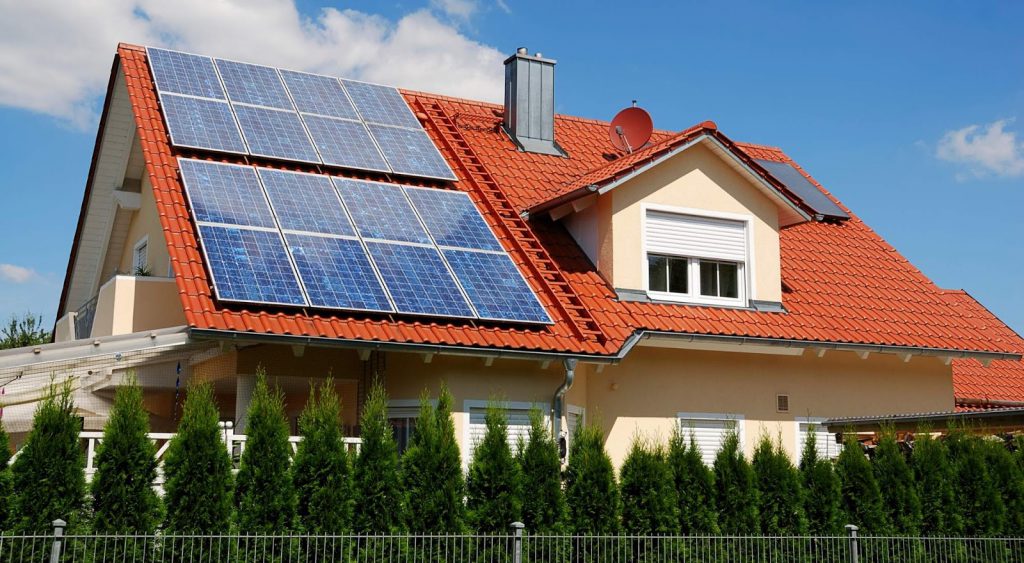
Which Option Saves More Money Over Time?
While leasing may seem like the cheaper option when comparing the upfront costs of obtaining a solar system, you may be wondering which option will save you the most money over time. Even though it requires a larger initial financial investment, if you have the cash or ability to obtain a loan, buying your solar panel system will save you the most money in the long run. This is especially true if your solar panel system can generate enough electricity to power your entire home. It takes the average American household approximately 10 years to recoup the initial investment associated with installing a solar panel system. Assuming your system lasts the full 25-30 years of the warranty, this means that the average American household will enjoy 15-20 years of free electricity as a result of installing a solar panel system. While leasing a solar panel system can result in significant monthly savings as well, John Farrell, of the Institute for Local Self-Reliance, says that owning your solar panel system results in about 50% more savings than that of leasing.Do Solar Panels Save Money Right Away?
Solar panels aren’t cheap so it’s important to consider the period involved when considering your potential savings. Your overall immediate savings, however, will depend on your financing option.Solar Panel Installation Costs vs. Your Monthly Electric Bill
If you bought your system outright, your savings will be reflected in your reduced electricity bill. However, you’ll also need to factor in the length of time it will take to recoup that large initial investment made to purchase the solar panel system. If you choose to lease or take out a loan for your solar panel system, your savings will be dependent on the amount of your lease or loan payment vs. the reduction of your electricity bill. Depending on the amount of energy produced by your system, it could take several years before you start seeing overall savings regarding your electricity costs.Upfront Costs
When setting up a new solar panel system, your upfront costs will vary greatly according to the financing option you choose. If you choose to buy your system outright, your upfront costs would be, on average, about $15,000. If you choose to finance your solar panel system, your upfront costs should be zero. However, you will have a monthly loan payment that will average around $159 per month, assuming you finance $15,000 for 10 years with an interest rate of 5%. Your actual monthly payment will vary depending on the exact finance amount and interest rate. If you choose to lease your system, your upfront costs, as well as associated monthly payments, will vary depending on the lease terms you agree to. While some companies may require a down payment, many leasing options allow you to get started with $0 down. Your associated monthly payment will range anywhere from $50-$250 per month, dependent on the exact terms of your lease agreement.Continued Operational and Maintenance Costs
In addition to your upfront costs and potential monthly payments, some post-installation expenses come with owning a solar panel system. Annual solar panel maintenance involves 2 main components:- Cleaning – average cost ranges from $300-$500, depending on the number of panels in your system
- Inspection – average cost ranges from $150-$300
When Do Monthly Electric Bill Savings Start?
The good news is that solar panels begin working immediately. You can begin reaping the benefits of your solar panel system as soon as the next electric bill after the installation of your system.How Long Does it Take For Solar Panels to Pay for Themselves?
The average cost for a typical 6kw solar panel system in Texas ranges between $13,000-$15,000 before incentives and tax credits. The average Texan home spends approximately $1,542 per year on electricity costs. If solar panels reduced your annual spending by 50%, it would take approximately 18 years for your solar panel system to pay for itself. If your annual electricity spending was reduced by 75%, it would take approximately 12 years to recoup the installation costs of your solar panel system. Should you get to a place where you were able to completely eliminate your monthly electricity bill, your solar panel system would pay for itself in a mere 9 years.How Much Do Solar Panels Save Over Time?
The amount that a family can save from the installation of solar panels varies greatly based on several factors. The main factors that must be considered are:- Did you lease, finance, or buy outright your solar panel system?
- How much energy, on average, is your solar panel generating?
- How much electricity, on average, is your home using?
On Average – How Much Can I Save With Solar Energy?
Generally speaking, the more energy produced by your solar panel system, the greater your savings will be. Likewise, lower average electricity usage will also result in greater overall savings. On average, homeowners that own their solar panel system will save around $6,200 over the lifetime of their system.Homeowners who lease their system will save, on average, $4,000 over the lifetime of their solar panel system.

Is There Another Way to Save on Electric Bills?
If solar panel expenses aren’t feasible for you right now, there is another way that you may be able to start saving on your electric bill right away. The single best way to ensure that you are getting the most savings monthly on your electric bill is to be sure that you have a plan that meets your own personal needs and electricity usage. Luckily for you, Power Wizard has a tool that does just that.Power Wizard Path to Savings
Power Wizard’s unbiased, state-of-the-art algorithm can match you with a plan that meets your personal needs and electricity usage in as little as 5 minutes. All you need to do is enter some basic information, such as:- Size of your home
- Age of your home
- Zipcode
- Average electricity usage
Find a Plan, Enroll, Never Search for Savings Again
Once you’ve been matched with a plan, enrolling is easy because Power Wizard will manage the enrollment process from start to finish. Power Wizard will handle everything, including:- Sending your information to your new provider
- Setting up your auto-pay account, if you desire
- Ensuring that you have no gaps in service
More From the Power Wizard Blog
-
Affordable Electric Bill: Power Wizard’s Promise of Protection
Sarah, a proud Texan, knows that everything is bigger in Texas – including the choices when it comes to electricity providers. She’s no stranger to the complexities of deregulated energy markets. With a bustling household, she juggles work, family, and keeping the lights on. But there’s one thing Sarah doesn’t want to juggle: her electric bill. […]
View Article -
Vampire Energy: How Phantom Power Drains Your Wallet and the Environment
Imagine your home filled with silent energy sippers, lurking in the shadows, unnoticed yet constantly draining power and your wallet. Vampire energy, or phantom load, refers to the electricity electronic devices consume, even when turned off or in standby mode. These energy vampires are prevalent in every household and workplace, from the charger left plugged […]
View Article -
Do Solar Panels Increase Home Value?
The United States now has more than 6,000 people who work in the solar power industry and help us enjoy the benefits of this amazing technology. As solar panels become more and more common, some people are wondering, “Do solar panels increase home value estimates?” The truth is that solar panels can provide a long list of […]
View Article -
What Is Net Metering and How Does It Work?
A staggering 1300% increase. That’s how much the number of electric customers engaging in net metering skyrocketed from 2010 to 2020. But what is behind this surge? What exactly is net metering, and how could it potentially change the way you view your electricity consumption? The journey from an ordinary consumer to a potentially profitable one […]
View Article -
The Top Sources of Carbon Emissions in the U.S.
Climate change due to rising global temperature seriously threatens the natural ecosystem. It can result in erratic weather featuring intense drought, heat waves, melting ice caps, warming oceans, and increased storms when left unchecked. As the impact of climate change worsens, the risk of biodiversity loss and human extinction gets bigger. Table of Contents What […]
View Article -
California Solar Tax Credit & Incentives for Residential Rooftop Solar
Are you considering investing in residential solar panels in California? You’re not the only one. Research shows that California was ranked number one out of 50 states in 2022 for solar power generation, with more than 11 million homes powered by the sun. A major reason why solar power is popular statewide is that prices have dropped […]
View Article -
What Should You Include in an Energy Efficiency Audit?
Rising energy costs mean higher electricity bills, and for the average homeowner or business, a little savings each month can add up to extra cash at the end of the year. If you’re looking for ways to reduce your home’s energy consumption, performing a home energy audit is a great place to start. Table of […]
View Article -
How to Cancel Your Electricity Contract with Your Provider
There are many advantages to changing your electrical service, including finding a better price, switching to a company with better customer service, and finding a distributor with a green appeal. It’s easiest to end your service when a contract ends, but sometimes it makes sense to switch early. For instance, you may find that you’re […]
View Article

